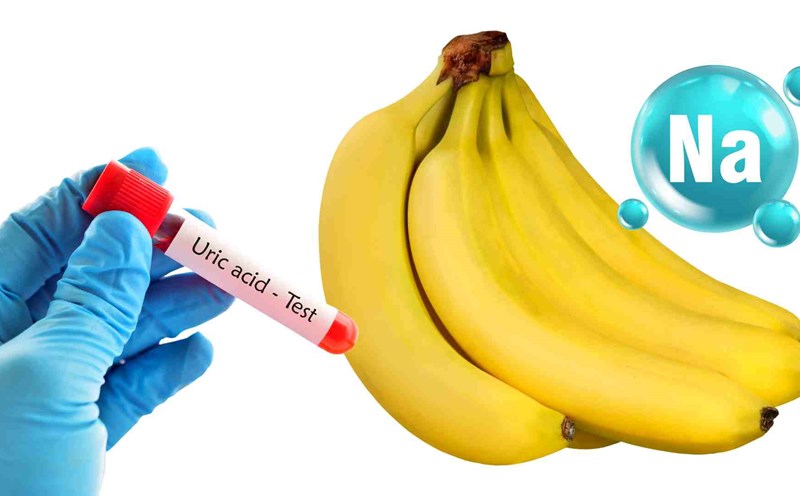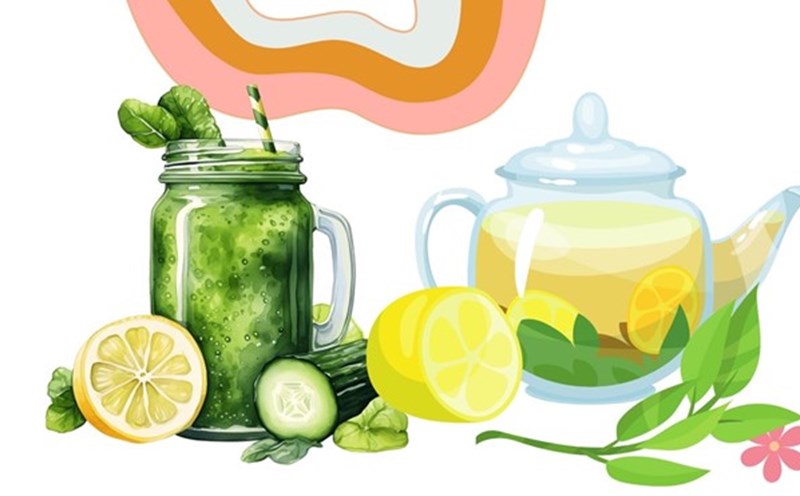Controlling uric acid in the blood depends not only on drugs but is also associated with daily diet. A healthy diet will help you maintain uric acid levels at a safe level, prevent gout and many other complications.
Why is uric acid control necessary?
Uric acid is a byproduct when the body breaks down purines - compounds found in many foods. If uric acid accumulates too much in the blood, crystals will settle in the joints, causing pain and inflammation, leading to gout. Therefore, monitoring your diet and choosing the right foods is an important step to keep uric acid levels stable.
Beneficial foods
Apple: Rich in malic acid, helps neutralize uric acid.
Apple cider vinegar: Drinking 3 tablespoons of vinegar mixed with water per day can help lower uric acid.
French bean juice: Traditional drink helps improve gout, should be used twice a day.
Water: Drink enough 8-9 glasses of water per day to eliminate excess uric acid.
Cherries: Anti-inflammatory, help prevent uric acid crystals from clumping.
Berries (strawberries, blueberries): Helps reduce inflammation, good for people with high uric acid levels.
Fresh vegetable juice ( carot, amaranth, cucumber): Supports detoxification and balances acid levels.
Low-fat milk: Helps reduce uric acid levels in the blood.
Foods rich in vitamin C: Kiwi, oranges, guava, lemons, tomatoes, green leafy vegetables help break down uric acid.
Olive oil: Contains antioxidants, anti-inflammatory, replace animal fat.
Celery seeds: Traditional foods help control uric acid.
Pinto beans, lentils, sunflower seeds: Rich in folic acid, helps reduce uric acid naturally.
Foods rich in fiber: Oats, pears, apples, broccoli, celery... help excrete uric acid through the kidneys.
Bananas: Helps reduce excess uric acid in the blood.
Green tea: Daily drink helps reduce the risk of gout.
Nuts: Rich in alkaline, help balance uric acid.
Tomatoes, cucumbers, broccoli: Should be eaten before main meals to limit uric acid accumulation.
Omega-3: Found in salmon, mackerel, sardines, flaxseeds, walnuts, helps reduce arthritis.
Foods to limit or avoid
Sweetener, sugary foods: Especially fructose, corn syrup, carbonated drinks. Sugar increases uric acid production and causes the risk of gout.
Alcohol, beer: When drinking, the kidneys have to focus on excreting alcohol, causing uric acid to stagnate in the blood.
Processed foods: Often high in sugar and saturated fat, are not good for people at risk of gout.
Control insulin to prevent disease
In addition to diet, high insulin levels in the body are also associated with uric acid levels. People who are overweight, obese or at risk of diabetes should regularly check their health and maintain a reasonable weight to prevent gout.











